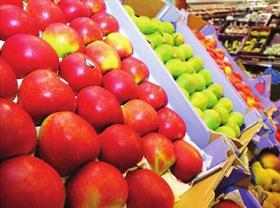
Argentina’s topfruit industry has closed the door on one of its most difficult marketing seasons due to a combination of complications on the Northern Hemisphere market.
The country’s pear exports fell by 5 per cent to 396,000 tonnes during the first six months of 2009, compared with the year-earlier period, according to data from Senasa, worth some US$279,000, 1.2 per cent less than during the same period of 2008.
Apple shipments also declined to 165,700 tonnes or US$113,5000, Senasa said, down 20-21 per cent on the first six months of last year.
“The economic crisis seriously affected consumer demand in the Northern Hemisphere, resulted in a strong devaluation in local currencies and drastically reduced finances,” Betina Ernst of Argentinean fruit trade analyst Top Info Marketing told Fruitnet.com.
“The recession-related problems also coincided with a large crop of apples and pears at a world level, with the markets already heavy with domestic stocks when the Southern Hemisphere came into season with its bumper crop,” Ms Ernst added.
Although pear exporters fared slightly better at the beginning of the season – when a 30-40 per cent decrease in EU stocks prompted solid demand, particularly for Argentinean Williams pears – Top Info said the market quickly saturated once volume entered full flow from Argentina, South Africa and Chile.
The late pear season – comprising Packhams, Abate and D’Anjou varieties – also proved difficult, given that pear prices remained higher than those for apples, oranges and other fruits.
The Southern Hemisphere apple marketing season, meanwhile, remained complicated throughout, according to Top Info.
The situation was especially difficult in Europe where a 20-30 per cent increase in local stocks – following a record Polish crop and bumper European production – resulted in lower-than-normal demand from buyers.



